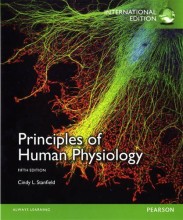Dendritic cells and antigen processing
7 important questions on Dendritic cells and antigen processing
Adaptive immune system pathogen fight
- antigen processing cells -> breaks down large protein -> presents on antigen-presenting receptors (major histocompatibility complex 'MHC') -> T cells recognize specific peptides bound to these receptors
- exogenous antigens -> proteins from bacteria in extracellular fluids
- endogenous antigens -> proteins from viruses that invade a cell
- MHC 1 binds endogenous antigens
- MHC 2 binds exogenous antigens
Function Dendritic cells
- processing exogenous antigens
- regulating adaptive immune system
Follicular Dentritic cells
- are also a form of M-DC
- play a role in promoting immunoglobulin A
- Higher grades + faster learning
- Never study anything twice
- 100% sure, 100% understanding
Categorization of dentritic cells
- immature cells trap antigens
- mature cells present antigens
Immature dendritic cells
- dendritic cells produce NADPH oxidase to kill invaders
- they mature in response to different pathogens
- inflamed tissue -> releases heparin, uric acid and High mobility group box protein-1 (HMGB-1) -> activates dendritic cells
- dendritic cells have a relatively low PH to not destroy proteins that have to be presented on MHC molecules
Mature dendritic cells
- enter lymphoid organs -> mature quickly
- mature dendritic cells attract T cells -> MHC molecules move to sell surface (maturing)
- one dendritic cell may activate 3000 T cells
- dendritic cell presents normal tissue antigens -> T cell deletion
- dendritic cells determine in which way naïve T cells develop
- signal depens on -> location, antigen encountering and intestinal microflora
- dendritic cells are found in all major domestic mammals
Other antigen processing cells
- Macrophages cant provide specific information on the antigen -> they destory most parts of the bacteria
- B cells can bind and process large amounts of specific antigen -> present this on MHC2 molecules to sentitive T cells
The question on the page originate from the summary of the following study material:
- A unique study and practice tool
- Never study anything twice again
- Get the grades you hope for
- 100% sure, 100% understanding
































